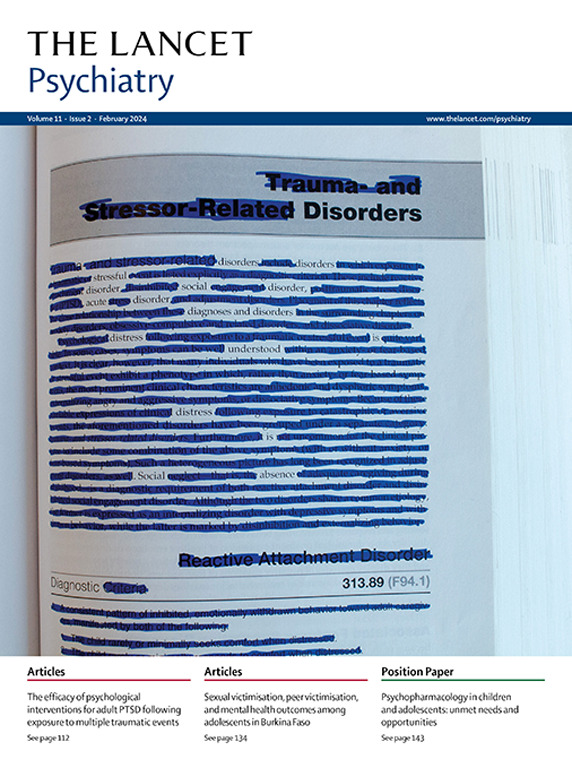Reevaluating the brain disease model of addiction
IF 30.8
1区 医学
Q1 PSYCHIATRY
引用次数: 0
Abstract
The brain disease model of addiction has dominated public and scientific discourse on addiction (termed substance use disorder [SUD] in the DSM-5) over the past 3 decades. The model framed addiction as a chronic and relapsing brain disease caused by structural and functional brain alterations. The purpose of this model was purportedly dual, as both an aetiological theory and a tool to reduce stigma. Weak empirical support and concerns about the model downplaying fundamental psychosocial causes of SUDs have led to stark disagreement as to whether addiction should be conceptualised as a brain disease. In this Personal View, we argue that the absence of an agreed, clear, and consistent definition of a brain disease—coupled with frequent recourse to concepts with divergent or shifting meaning—have obstructed productive debate and a coherent advance in knowledge and understanding of addiction. Borrowing from the philosophy of psychiatry, we show that both narrow and broad views of brain disease coexist and inform addiction research, though often implicitly and inconsistently. The narrow view of brain disease posits that a mental condition qualifies as a brain disease only if it manifests similarly to a paradigmatic brain disease, resulting from either known or unknown structural and functional damage. The broad view of brain disease suggests that brain disease status should be granted automatically to mental disorders, as all mental activity resides in the brain. We examine theoretical assumptions, empirical evidence, and treatment implications for each view and propose ways of moving beyond them.重新评估成瘾的脑部疾病模型
在过去的 30 年中,成瘾的脑部疾病模型一直主导着公众和科学界关于成瘾(在《医学病理学手册》第 5 版中称为药物使用障碍 [SUD])的讨论。该模式将成瘾定义为一种由大脑结构和功能改变引起的慢性、复发性脑部疾病。据称,该模式具有双重目的,既是一种病因理论,也是一种减少成见的工具。由于缺乏实证支持,加上人们担心该模式会淡化导致药物依赖性成瘾的基本社会心理原因,因此在是否应将成瘾概念化为一种脑部疾病的问题上出现了严重分歧。在这篇《个人观点》中,我们认为,由于对脑部疾病缺乏一致、清晰和连贯的定义,再加上经常使用含义不同或不断变化的概念,因此阻碍了富有成效的辩论,也阻碍了对成瘾的认识和理解取得连贯一致的进展。借用精神病学哲学的观点,我们表明,狭义和广义的脑疾病观点并存,并为成瘾研究提供信息,尽管往往是隐含的和不一致的。狭义的脑病观点认为,只有当一种精神疾病的表现与典型的脑病相似,并由已知或未知的结构和功能损伤导致时,这种精神疾病才有资格被称为脑病。广义的脑部疾病观点则认为,精神疾病应自动获得脑部疾病的地位,因为所有的精神活动都存在于大脑中。我们研究了每种观点的理论假设、经验证据和治疗意义,并提出了超越这些观点的方法。
本文章由计算机程序翻译,如有差异,请以英文原文为准。
求助全文
约1分钟内获得全文
求助全文
来源期刊

Lancet Psychiatry
PSYCHIATRY-
CiteScore
58.30
自引率
0.90%
发文量
0
期刊介绍:
The Lancet Psychiatry is a globally renowned and trusted resource for groundbreaking research in the field of psychiatry. We specialize in publishing original studies that contribute to transforming and shedding light on important aspects of psychiatric practice. Our comprehensive coverage extends to diverse topics including psychopharmacology, psychotherapy, and psychosocial approaches that address psychiatric disorders throughout the lifespan. We aim to channel innovative treatments and examine the biological research that forms the foundation of such advancements. Our journal also explores novel service delivery methods and promotes fresh perspectives on mental illness, emphasizing the significant contributions of social psychiatry.
 求助内容:
求助内容: 应助结果提醒方式:
应助结果提醒方式:


